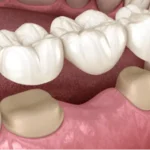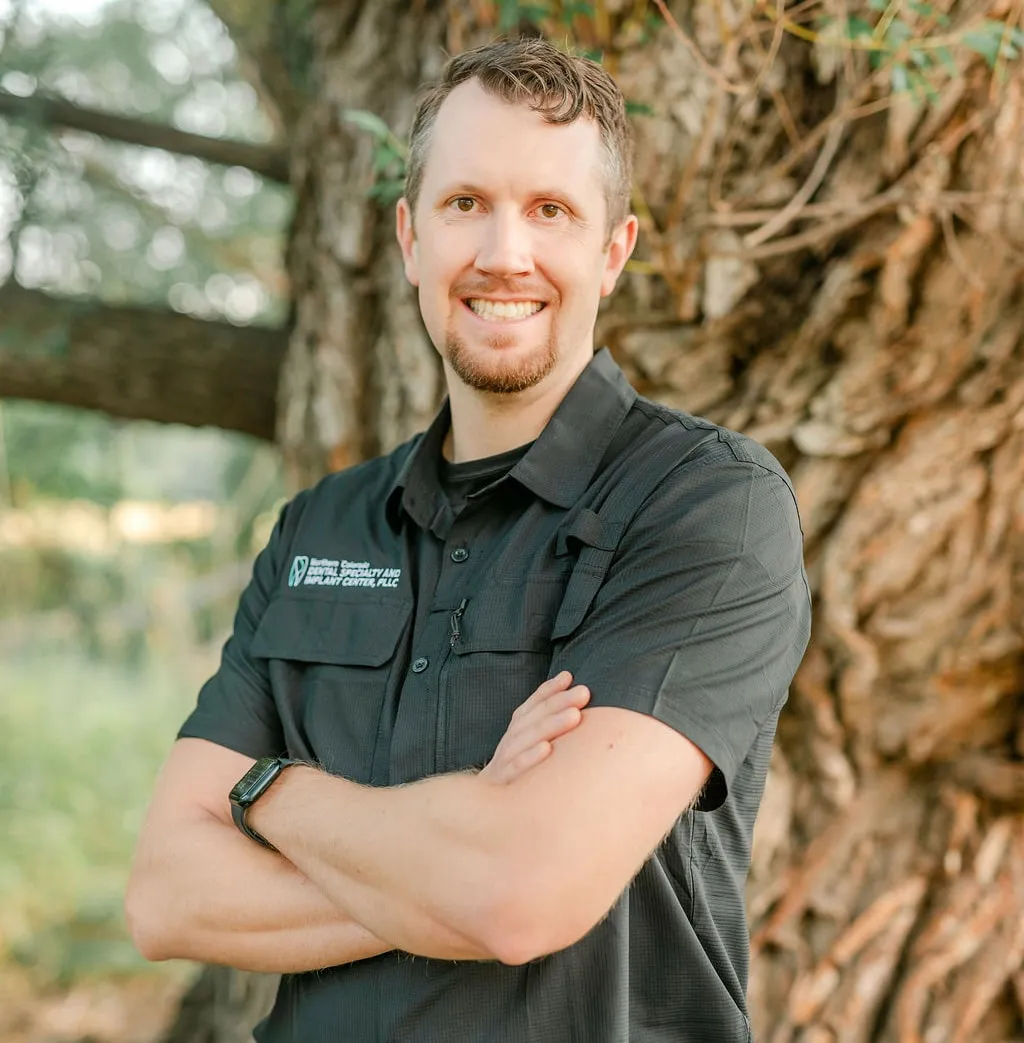
Dental Bridge
Dental bridges effectively restore your smile by filling gaps left by missing teeth. Bridges not only improve appearance and confidence but also help maintain proper chewing and speaking functions. Designed to seamlessly blend with your natural teeth, bridges can help prevent surrounding teeth from shifting and maintain your facial structure.
Schedule Consultation
What Is A Dental Bridge?
Living with missing teeth can affect more than just your appearance. It can make eating and speaking difficult, and even impact your self-esteem. Fortunately, there is a modern solution for missing teeth: a dental bridge.

A dental bridge is a custom-made restoration that replaces one or more missing teeth by “anchoring” artificial teeth to the healthy, natural teeth on either side of the gap.
Your teeth act as sturdy pillars, and the bridge spans the gap between them – filling the empty space with beautiful, functional replacement teeth.
Schedule an Appointment Now
Your healthiest smile starts with regular cleanings and personalized care. Whether it’s your first visit or a routine appointment, our friendly dental team is here to make your experience comfortable and stress-free.
"*" indicates required fields
Real Results, Real Smiles
Our Patients Say It Best
Our Specialty Dentists

Justin Liddle, DMD, CDT, Prosthodontist
Dr. Liddle is a distinguished prosthodontist who earned his doctorate from Case Western Reserve University and completed a three-year Prosthodontic Residency at Louisiana State University Health Science Center. Internationally trained in dental esthetics and implant dentistry, he was awarded 1st Place in the Nobel Biocare Student Case Presentation Award. As one of the few prosthodontists serving Northern Colorado, Wyoming, and Nebraska, Dr. Liddle is also a respected educator, leading advanced courses on implant dentistry techniques.

Kirk Harvey, DMD
Dr. Kirk Harvey earned his Doctor of Dental Medicine degree from Midwestern University College of Dental Medicine in Arizona, where he was honored with the prestigious Hanau Excellence in Prosthodontics Award for his outstanding clinical skills.
How Can We Help?
Frequently Asked Questions
Whether you're exploring treatment options like dentures or dental implants, looking to brighten your smile, or curious about the latest technology in dental care, this FAQ section is here to help. Learn why choosing a prosthodontist—an expert in the restoration and replacement of teeth—can make a difference in your treatment experience and results. Dive into answers about procedures, benefits, and innovations that can guide you toward a healthier, more confident smile.
More FAQsTypes of Dental Bridges
Here’s a fun fact: Not all bridges are created equal! There are actually several types of dental bridges available – each with its own benefits and uses. Our team of experts will help you determine which option may be best for your smile.
Traditional Dental Bridge
A traditional dental bridge is by far the most common type - and for good reason. The conventional bridge includes crowns for the teeth on either side of your gap (abutment teeth) with artificial teeth (pontics) suspended between them.
Cantilever Bridge
Some individuals only have teeth on one side of the gap, which can make a traditional bridge difficult to implement. Fortunately, a cantilever bridge can help. This specialized bridge anchors to one or more teeth on just one side of the missing tooth space.
Maryland Bonded Bridge
Are you looking for a more conservative option? A Maryland bonded bridge (sometimes called a resin-bonded bridge) might be the answer.
Instead of crowns, a Maryland bonded bridge uses a metal or porcelain framework that is bonded to the backs of your adjacent teeth.
Implant-Supported Bridge
When you need to replace multiple missing teeth, another great option is an implant-supported bridge. Instead of relying on natural teeth for support, an implant-supported bridge anchors to dental implants placed directly in your jawbone. Implant-supported bridges don't require altering any natural teeth, and they can last a lifetime with proper care.

Why Choose Northern Colorado Dental Specialty
When you need a beautiful new smile, the Fort Collins Dental Implants team is the right choice! We are the premier choice for dental implants in Fort Collins and we would be honored to serve your dental implant needs. Some of the reasons you should choose us:
- Beautiful Smile in as little as 24 hours
- Personalized Implants for you
- Award-Winning Doctors
- Over 20 years of experience
- Thousands of Happy Dental Implant Clients
- On-Site Lab for the Perfect Fit, Shape and Color
- Third-Party Financing and flexible payment plans

Healthy Smiles Start Here!
Exceptional care tailored to you. Cutting-edge technology. Supreme comfort. We're transforming dental experiences in the Fort Collins area with pioneering treatments, always prioritizing our patients. Now is the perfect moment to begin crafting your ideal smile. Get in touch with us today to schedule your appointment and take the first step.
Schedule Now